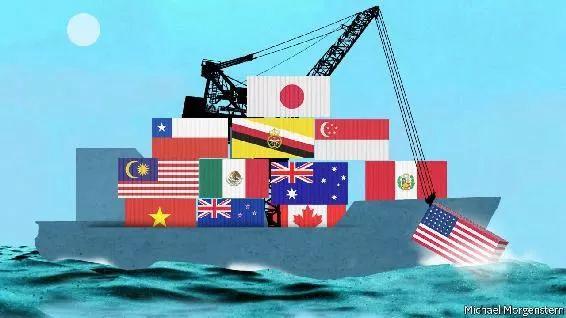物流&供应链学生专栏:物流专业留学怎么准备?选择?规划?

很多同学私信我想出国留学要如何做,那么这一篇,我们就来聊聊物流专业留学的事,让大家可以有一个提前的规划。
先看看大家的问题:
来信1:
陈老师好,想问您一下国外的物流教学和国内比有如何差异呢?教学模式上是否有不一样的地方?还有是否会有技能培养的相关课程。尽管现在我大三,学了不少于10门专业课,为何感觉目前学到的课程完全脱离了实际,老师教学模式基本是读PPT,考试基本以画题背诵为主。很好奇国外的物流相关专业的课程和学习模式是怎样?
来信2:
陈老师您好。我现在是一名大一新生,我有出国留学的打算,目前我的本科学校是一所985,英语水平中上(高考125/150满)。想咨询一下老师应该如何着手准备呢?具体节奏应该怎么进行?哪些国家哪些学校可以作为参考?申请的难度多大?不同的学校教学上有哪些特色呢?望老师不吝赐教。
来信3:
鹤天老师好。我是属于蜗牛一类的人,一直很默默的努力着,但总觉得自己有点自卑,大概是因为长得一般吧。但是听了您之前的分享,我发现自己其实可以做的更多,也相信心有多大舞台就有多大。由此有了想出国留学的想法。我现在大二,成绩稳定在年级前10(年级400人),英语自认为还不错,6级580分,家庭条件一般,家里资助有限,想问问老师有没有哪些学校可以提供奖学金或助学金比较多,然后可以打工赚学费的呢?还有国外物流专业都有哪些方向呢?问题有点多,感谢老师一直的鼓励,希望老师可以抽时间回复一下。
来信4:
老师您好。我是在美国读的研究生,现已毕业,在一家中美合资公司工作。之前在国内读的本科,有过一段实习经历,在美国读研期间也有一段实习经历,是在一家物流公司。现在比较乱,一是不知是否可以留在美国,另外一个是觉得国内的机会更好,有前景。但是现在回国的话好像也没有特别合适的机会,感觉十分迷茫。想问问老师,如果回国的话去哪类公司老师比较推荐,以及当下的情况老师是否有好的建议。
来信5:
陈老师,您好。我现在在英国一所大学商学院读供应链管理专业。这个学校的物流专业很不错,但是我现在有点迷茫,因为是本科毕业后直接读的研究生,因此基本没有太多的实习经验。同时国外学的很多内容感觉也不能完全应用于国内,同时也不太了解国内的现状。想问问老师我现在应该怎样计划会能够更落地一些?而且我发现现在“海龟”在国内遇冷,很多企业也不是很看重你的学历。究竟应该如何能够了解国内物流环境的现状以便于更好的在上学期间研究相关的内容呢?期待老师的回复。
看完大家的问题,特别想送给大家一段话:如果说心有多大舞台就有多大,留学则是为你打开新眼界的大门。留学期间的生活将会成为你人生中一段最宝贵的日子,因为你曾孤独过、你曾质疑过、你曾拼搏过。留学前刷“托”考G(GRE/GMAT)的日子会让你觉得青春无悔;留学中废寝忘食、夜以继日地看paper、挣生活费的艰辛、思家的孤苦都会让你成为一个全新的自己,但这也是生活所给予的。既然你做好了准备,那就开始这一段旅程。
在这篇文章里主要和大家聊4个方面的事情:
第一:计划留学前的准备(即如何树立正确的留学意识);
第二:国外物流与供应链专业的大学有哪些?有哪些专业与方向?
第三:国外物流管理专业的课程特色与课程内容;
第四:留学生回国后的定位;
一、计划留学前的准备
在大家计划留学之前,需要做好两方面的准备:心理准备和申请准备。从准备申请到面试收到录取通知书,完成签证等全部步骤,其实是很费心力的。因此,可以将其描述成一场“持久战”。
(一)心理准备主要体现在四个点上:
1.内心对留学有强烈的愿望;
2.可以抵制住留学过程中诸多不良诱惑;
3.可以应对内心的孤独和沮丧(学习上的压力、精神上的无助);
4.已经具备独立生活能力(包括做饭、洗衣等);
如果这四点上都已做好心理准备,那就可以开始进行下一步:申请准备。
(二)申请准备
接下来和大家说一下准备的过程与思路:
首先建议大家先在外企工作两年再选择留学,因为外企的招聘通常在大三下学期的暑假和大四上学期,不晚于11月份,可以知道自己的录取情况。不过也有很多同学就想直接出国学习,这个就看自己的选择。因为只有工作后才知道自己要真正研究那些方向,才能学以致用,尤其是对本科学校一般的情况下,好的工作经历会有助于申请。也有很多学生在本科期间就已经通过实习明确了,所以就看大家的状态和选择。无论如何,申请中所需材料和申请过程是一致的。具体流程:
1.根据学习的方向,经历和过往难度等选定国家、学校、专业;
2.根据学校及专业要求,准备语言考试;
3.准备以下7项内容:
(1)学历证明;(2)大学成绩单;(3)语言成绩;
(4)PS(个人陈述);(5)CV(个人简历);(6)推荐信
(7)其他证明材料(荣誉证书、竞赛成果、发表论文等)
具体来看,首先大家需要准备的是一份漂亮的大学成绩单和你的语言成绩。这两项是判断一个学生能力的最基本的条件。因此在大学时,如果你想准备留学,那么你需要把每一科的成绩尽量提到优秀,同时要准备语言考试。
语言考试包括两部分:
1)语言水平测试:TOEFL (托福)& IELTS(雅思)
2)能力水平测试:GRE & GMAT
其中值得注意的是,有部分国家或学校是不接受托福成绩的,所以大家在进行语言考试前,看清楚学校的要求。
一般来说,很多学校和专业,以 托福92+;雅思6.5+ 为最低要求。具体学习方法后续的文章里会和大家说。
(三)申请成功后的准备
1.英语能力要持续提升;重点在对话与看论文方面;
2.规划研究生学习的重点、方向和实习的准备;
3.最好找到直系学长,询问学习、生活的建议和意见;
4.确定所学方向后,可以试图寻找国内的相关领域的企业进行假期实习申请;
5.留学毕竟是一个人的旅程,还在家时多陪伴家人;
(四)低成本留学
1.奖学金的申请:工科比商科和文科更容易获得奖学金,尤其是在重大项目上获得过奖项,发表过高质量的论文、优秀的实习经历、很高的语言成绩等;
2.荷兰(阿姆斯特丹大学)、新加坡(新加坡国立大学)等都是不错的选择,学费相对低且以英语教学为主。
新加坡国立大学的供应链管理硕士项目开设在其独立的亚太物流研究学院下。新加坡对物流,供应链这种专业的侧重点和其他国家有些不同,很多国家的物流项目都在商学院下偏重管理,而新加坡主要侧重于供应链工程方面。
二、国外物流与供应链专业的大学有哪些?有哪些专业与方向?
(部分内容来源自学校官网和网上资源)
美国大学物流与供应链管理专业概况
专业方向
美国大学Logistics/Supply Chain(物流管理/供应链管理专业)基本上都设在商学院中,也有开设在工程学院的工业工程专业里,还有一个分支是operation management。
物流管理/供应链管理专业主要分为三类:
第一类偏重于供应链和数理分析研究,需要申请者具有工科的背景,奖学金比其他的两类物流专业好拿;
第二类是MBA的一个分支,需要按照MBA的标准来申请;
第三类是偏重于物流和供应链的管理方法。
作为一个交叉性的学科,物流管理专业综合了多门学科的研究方法和特点,包括运筹学、信息管理学、市场,甚至会计和金融等等学科。
工学院下的物流偏重分析,商学院下的物流偏重物流策略的管理和执行。
美国哪些院校的物流专业比较有名?
1、物流专业包含在工业工程系,偏重分析和研究的学校。
(1) Columbia University(NY) 专业排名:13
物流专业没有设在在商学院,而是在工程学院的工业工程系里,专门有Engineering Management Systems的专业方向,主要集中在物流,供应链以及预算管理的分析领域,非常偏重于利用工程学的方法以及随即模型的建立对物流和供应链进行研究和分析,不适合文科的申请者,适合理工科背景的申请者。
(2) Georgia Institute of Technology专业排名:14
和Columbia大学一样,物流管理没有设在在商学院,而是在工程学院的工业工程系里,专门有Logistics and Transportation的方向,比较适合理工科背景的申请者申请。
2、提供专门的物流和供应链学位的学校
(3) Massachusetts Institute of Technology(Sloan)专业排名:1
物流和供应链专业设在Sloan School of business and management里面,System Design and Management Program就专门有supply chain的方向。另外,在PHD的研究方向中,专门有operation management的方向以及Center for Transportation &Logistics,专门从事物流以及供应链方面的研究,主要侧重制造业和交通领域的物流和供应链研究。Sloan商学院是全美最著名的商学院之一,申请难度非常大。需要注意的是,MIT的物流主要偏重制造业领域的应用,比较适合工科背景的申请者,或者在制造业有工作经验的申请者。
(4) Michigan State University(Broad)专业排名:2
商学院专门提供Master of Science in Logistics学位。这个学校的物流专业主要偏重于提高企业竞争力和战略规划上面,要求申请者至少要有2年工作经验。这个学校的物流专业比较适合在国内有相关领域的工作经验,文科背景的申请者。
(5) Case Western Reserve University,综合排名37
物流专业设在管理学院当中,专门有Master of Management in Supply Chain Management,学习内容包括供应链管理方法,概念以及数量研究方法。这个硕士项目与一般的两年制硕士不同,它只要一年就可以完成。但是这个专业比较偏重分析,因此要求申请者必须有比较强的数理背景,比如多重微积分,C++编程等方面的基础。因此,比较适合理工科背景的申请者。
3、物流管理包含在MBA项目中的学校
(6) Arizona State University–Main Campus(Carey)专业排名:3
商学院专门有Department of Supply Chain Management,有本科,硕士和博士级别的专业学习。但是没有单独的Supply Chain Management的Master学位,而是MBA的Supply Chain Management的concentration,因此读这个学校的物流和供应链管理,必须申请MBA。
(7) Ohio State University(Fisher)专业排名:8
商学院有两个关于物流的学位。一个是MBA,提供运筹学和物流管理concentration。另外,还有Master in Business Logistics Engineering学位,主要研究如何利用供应链的方法对信息流和货物流进行协调和规划。这个Master学位不需要工作经验。
(8) Carnegie Mellon University (Tepper Business School)专业排名:5
商学院没有一个专门的物流专业,但是MBA的concentration有Operations Strategy and Management Track,表面上看这个和物流,供应链没什么关系,但是实际上这个专业就是进行供应链管理的研究。
(9)Stanford University(CA)专业排名:6
MBA有Operations, Information, and Technology的concentration,虽然名称不是物流和供应链,但实际上学习的内容就是物流和供应链管理,以及供应网络的管理和规划。
(10)University of Pennsylvania(Wharton)专业排名:9
商学院的MBA项目专门有Marketing and Operations Management的concentration,主要内容就是供应链管理,新产品管理,商标管理等等。另外,还有一个Operations and Information Management的concentration,这个方向与制造业联系紧密,主要研究制造业和运输领域的物理供应链以及信息系统。
(11) University of Michigan–Ann Arbor(Ross)专业排名:9
商学院的MBA提供Operations and Management方向的学习,主要内容包括供应链管理,此外还有PHD的学习,产品以及加工过程设计,容量规划以及需求管理等等,这些都是物流和供应链的内容。
(12)University of Maryland–College Park(Smith)专业排名:12
商学院的MBA和PhD都有Logistics and Supply Chain专业方向的学习,主要集中在物流与运输,运筹管理和市场。
MBA的物流管理方向要求申请者必须有工作经验,难度最大,而且几乎没有奖学金,偏重于管理的第三类物流专业不要求申请者有工作经验,但是要求申请者有管理专业的背景,拿半奖的可能还是比较大的,但是全奖不太可能。第一类物流专业比较偏重于数理分析和研究,需要申请者具有工科的背景,奖学金比其他的两类物流专业好拿。另外,工作经验对申请这个专业的奖学金非常有帮助,美国大学的物流专业比较看重工作经验,即使申请者的GT成绩一般,如果有相关领域的工作经验,申请到奖学金的可能性还是非常大的。
英国大学物流与供应链管理专业概况
英国物流专业学校介绍
1.Cranfield University--克兰菲尔德大学
可能很多人没有听说过这个大学,这个大学不招收本科生,只招收研究生,因此不参加英国大学的排名。该校以航天航空、国防、自然科学等学科见长,其物流专业在英国乃至整个欧洲都是享有盛誉的。该校下设物流和供应链管理中心,是全球供应链管理领域最大的研究和教育中心,其毕业生也广泛受到业界公司的亲睐。
推荐专业:MSc Logistics and Supply Chain Management 课程安排紧密,有20多门课,包括物流,运输,仓储库存,市场,流程管理等。
入学要求:雅思6.5,写作不低也6.5,单项不低于6,可能要求提供GMAT600以上的成绩,并且需要参加学校的电话面试或者是在国内的当场面试。
2.Heriot-Watt University---赫尔瓦特大学
该校位于美丽的苏格兰首府爱丁堡,为了纪念英国皇家金融家乔治赫瑞与蒸汽动力研究的先驱杰姆斯瓦特而成立。综合排名在英国的前四十。其在物流领域的声誉显著,仅次于克兰菲尔德大学之后。物流课程有物流注册协会认证和供给注册协会认证。
推荐专业:MSc Logistics and Supply Chain Management
课程下设在管理学院,共12门课,包括物流战略,物流系统设计,采购和供应,绿色物流,以及货运,仓储,项目控制,财务和统计等课程。由于该校的工科比较强,所以课程方面技术性更强。
入学要求:雅思6.5,小分不低于6。
3. Cardiff University -- 卡迪夫大学
位于威尔士首府卡迪夫市,是威尔士最大的学府,物流专业是本校的优势专业。世界排名130左右。
推荐课程:MSc Transport and Planning(受注册物流协会和皇家城镇规划协会认可)。这个专业课时设置不紧,学生有时间打工或者去干别的事情。
入学要求:总分6.5,小分不低于6。
4. University of Liverpool -- 利物浦大学
红砖大学之一,罗素集团和N8集团成员大学,诞生过8名诺贝尔奖得主,香港特首董建华母校。世界排名在120左右。物流专业也是本校的优势专业。
推荐课程:MSc Operations and Supply Chain Management (被特许供给协会认可)。该课程下设在管理学院的社会环境系里,课程被CIPS认证。课程包括4个必修和4个选修,有商业分析评估,供应链管理,战略运作管理,Lean Thinking,电子商务等。
入学要求:雅思要求总分6.5,单项不低于6。
5. University Of Manchester曼彻斯特大学
位于英格兰曼彻斯特市,著名红砖大学之一,25位诺贝尔奖得主,世界排名在前30。
推荐专业:MSc Operations, Project and Supply Chain Management。
入学要求:雅思总分7,写作7,其他不低于6,申请的时候必须就有6.5或者7,单项不低于6的雅思成绩。
6. University of Warwick---华威大学
位于英格兰中部考文垂市,英国排名前10,世界排名前50。
推荐专业:MSc in Supply Chain and Logistics Management(授特许供给协会认证)。MSc in Supply Engineering & Logistics 这是工程学院WMG的下设课程,WMG是欧洲的汽车研究中心和航天研究中心,与企业界关系很密切,研究经费充足,也是英政府的宠儿。它的课程主要与制造企业的供应链相关,包括采购,库存,合同,运输,物流和运作管理等课程,还包括财务,运筹学,人力资源和生产方面的课程,素有Engineering MBA之称。1年12个module,9个必修,3个选修,课程很紧,平均2周1门课,其中部分课程是由德国多特蒙德大学的老师来授课。该专业比较重实践,适合有工作经验的人读。
入学要求:雅思总分6.5,小分不低于6。
7. University of Sheffield--谢菲尔德大学
位于英格兰谢菲尔德市,红砖大学之一,罗素集团成员大学,世界排名前70。
推荐专业:MSc Logistics and Supply Chain Management 。
入学要求:雅思总分7,单项不低于6。
8. Nottingham University--诺丁汉大学
位于英格兰诺丁汉郡,罗素集团成员,同时也是全球Universities 21 的加盟学校之一,在教学和科研方面都享有国际声誉。
推荐课程:MSC Logistics and Supply Chain Management, MSC Supply Chain and Operations Management。
入学要求:总分6.5,小分不低于6。
9. Lancaster University--兰卡斯特大学
位于英格兰的兰开夏郡,英国排名前10,世界排名160多。
推荐课程:MSc Logistics and Supply Chain Management。
入学要求:雅思7分。
三、国外物流管理专业的课程特色与课程内容
以英国克兰菲尔德大学为例:
其必修课和选修课的课程与课程大纲:
其总必修课程共计10门,(具体内容来源于学校官网)
1. Supply Chain Strategy and Sustainability
This module is intended to provide you with a sound foundation to the course by introducing the main concepts and principles that underpin Logistics and Supply Chain Management, including the important issue of sustainability.
The module is called ‘Supply Chain Strategy & Sustainability’ and presents the fundamental principles of contemporary logistics and supply chain management within a business context. This unit will explore the ways in which good practice in these fields can contribute to achieving sustainable competitive advantage. Overarching aspects of Supply chain sustainability are explored, such as corporate responsibility, ethics and reverse logistics. Further the Global Supply Chain Game will enable students to understand through an interactive and competitive business game the principles of building an efficient global sourcing and supply chain under conditions of uncertainty so as to achieve high levels of profit and product availability.
Global marketplaces are characterized by shortening product life cycles, increasing product variety, and highly variable demand that is difficult to forecast. The module explores how the competitive landscape is constantly changing, and the role of logistics and supply chain management in meeting the challenges raised. Research from CLSCM faculty is integrated with our own case studies, originating from a network of companies in a range of sectors to demonstrate particular concepts around agile and lean supply chains.
2. Principles of Strategic Procurement
The module will explore the subject of procurement and supply in the industrial and commercial context, explaining its role and purpose within the supply chain. Students will learn how procurement has developed, the skills and information needed by procurement professionals, the academic theory and knowledge accumulated on the subject area and the use of specific tools and techniques employed in managing the procurement function. In addition, we will explore and use some of the recently emerged technologies within e-procurement which are designed to improve both process and cost management.
3. Inventory and Operations Management
To provide students with a comprehension of the roles of Operations within the overall context of Supply Chain Management and enable them to analyze and design effective supply chain operations with the ultimate goal to improve the match between demand and supply.
4. Accounting and Finance for Supply Chain Management
The aim of the Accounting and Finance for Supply Chain Management (ACF) module is to introduce a number of traditional and contemporary accounting approaches that will increase the visibility of financial information, enabling supply chain managers to make informed decisions, which enhance value for their organizations.
5.Analytical Techniques for Supply Chain Management
Managerial decisions in logistics and supply chain management are heavily based on quantitative analysis using models from the management science discipline. Data, models and available software have dramatically changed the operations in manufacturing, services and logistics sectors. The module aims to provide students with an introduction to the role and relevance of analytical techniques in logistics and supply chain management. From simple graphs to deterministic and stochastic optimization models, it offers transferable skills to use associated techniques for the practice of these disciplines. Students will develop the ability to model and solve realistic decision problems in the context of logistics and supply chain management. This process will be facilitated by spreadsheet-based software packages where the students will have an opportunity to build their own spreadsheet models with emphasis on appropriate application of methods and interpretation of output.
6. Freight Transport
The Freight Transport module element provides a sound foundation in road, rail, air and sea freight transport. The focus is primarily from a user perspective in order to provide a logistics and supply chain management viewpoint. However, in road freight, the module also covers more detailed fleet management and operational aspects, recognizing that many organizations operate their own road transport fleets but also reflecting the importance of road freight as the primary inland freight mode in most geographies for national traffic.
7. Information Systems and e-Business
To provide theoretical and practical knowledge about:
The value of information and the role of information systems (IS) for supply chain management.
The opportunities provided for the supply chain management operations of companies by applying the information systems, and also the challenges that they will have when implementing the information systems.
The role of information systems in e-business and the impacts of e-business on supply chain management of companies
8. Physical Network Design
The heart of any logistics and supply chain operation is its physical network. The location of factories, distribution centers, suppliers, customers and so forth and the means by which they are linked, fundamentally affects the efficiency with which an organization’s network operates.
This module aims to introduce the concepts and techniques of network theory and analysis and use these to demonstrate how physical networks are designed, redesigned and optimized and how current supply chain trends and challenges are influencing this design. All aspects of the module are illustrated by the use of practical examples, ranging from manual calculations through to computerized network optimization software.
9. Project Management Introduction
This is an introduction to the subject. However, it is our contention that projects are the building blocks of strategy. Also, the module provides a logical and simple process by which students may approach their own modules and objectives, and may well be a valuable source of confidence for taking on major elective projects later in the year. Project Management Introduction (PMI) demonstrates how management respects no boundaries (either in terms of functional silos – departments, etc. or theoretical disciplines). PMI provides additional opportunities to practice personal communication skills, and generally the module provides a basis for personal development and increased confidence and self-awareness.
10. Warehousing
The module provides a thorough grounding in the role and operation of warehouses including the range of storage and handling equipment, the design of warehouses and the use of information technology. It emphasizes on the strategic use of methods to analyze the wide range of available options. Additionally, the module focuses on developing the students’ ability to discern and use appropriate warehouse design techniques.
This module is taught in light of the wider context of an organization’s supply chain strategy and, thus, equips students with the means to tackle the warehousing aspects of complex supply chain problems.
选修:
1.Logistics Outsourcing
The outsourcing of logistics has developed rapidly over the last ten years. The 3PL (Third party Logistics) providers have become part of a very competitive and dynamic industry. The overall aim of this elective is to take students through the various aspects related to selecting (tendering) and working with a third party logistics contractor. Additional aspects, covering the development of new logistics outsourcing business models (Fourth Party Logistics- 4PL), will also be covered.
2.Performance Measurement in the Supply Chain
Performance measurement and management (PMM) has been on the agenda of both academics and practitioners in both private and public sectors for several decades. However, despite the substantial resources invested in PMM by organizations, research shows that PMM-related initiatives, such as the implementation of scorecards or the adoption of PM procedures, can often fail to bring the intended benefits. Moreover, sometimes they turn out to be detrimental to the performance of the organization!
If organizations are to realize value and become more sustainable in the longer term, it is crucial to understand how exactly performance measurement and management practices deliver improved performance. Even more, when several interconnected organizations form a part of a supply network, the measurement task is particularly complicated. Does performance measurement in supply networks deserve special treatment? Do the general principles of organizational performance management still apply? These are some of the questions the module will address.
This module will focus on the types and structures of performance measurement systems such as the Balanced Scorecard and the Performance Prism and on the design of appropriate strategy and success maps, performance targets, and indicators.
3.Business Process Outsourcing
Business process outsourcing (BPO) is a strategic initiative by which an organization sub-contracts to a third-party provider activities and responsibilities of specific business processes. This can include processes related to Customer Service, Information Technology, Procurement, Logistics, Accounting or Human Resources. The aim of this module is give students the knowledge and skills to evaluate where and when BPO initiatives are appropriate and to understand how maximize the value and minimize the risk from BPO relationships.
4.Designing and Managing Resilient Supply Chains
The main thrust of this elective is that organizations can and should develop supply chain resilience as means to building routines for non-routine events. In today’s interconnected world future supply chain professionals have to recognize potential risks of experiencing a supply chain disruption and be able to prepare for, react to and recover from the unforeseen supply chains, i.e. to develop resilience. This module explores the dimensions, approaches, decision-making and causalities of resilience. Insights from retrospective and real time case studies will provide the basis for understanding the vulnerability of today’s global supply chains. Moreover, they will enable the students to experiment both with the perspectives of supply chain planners anticipating supply chain risks and improving the resilience of the supply chain design and supply chain continuity managers responsible for ensuring rapid recovery after a disruptive event.
5.Simulation
The overall aim of this elective is to provide you with a good appreciation of the application, strengths and weaknesses of simulation modelling techniques and the software that can be used to support decision-making in logistics and supply chain management. You will gain hands-on experience of using spreadsheet models including the use of specialist simulation add-ins and general purpose simulation software to solve decision problems in a specific supply chain management context.
6.Retail Logistics
The aim of this module is twofold. Firstly, it aims to provide an overview of the breadth of Retail Logistics operations in modern retail organizations. This involves raising awareness and understanding of the key strategic issues involved in the way retail organizations manage their logistics activities and facilities within and beyond the firm boundaries. Secondly, the course aims to provide participants with an understanding and appreciation of the key contemporary trends in retail logistics.
7.Six Sigma
The Six Sigma elective will build on and develop some of the analytical skills introduced during the core modules of the Course in terms one and two. It will be situated in the context of Quality methods and Total Quality Management (TQM) describing their development from Deming to the present day. The elective will provide an understanding and practical utilization of the Six Sigma methodology following the Define-Measure-Analyze-Improve-Control (DMAIC) approach. You will be able to combine theory with practical case work which will experiment with quantitative and qualitative techniques employed in the solving of typical supply chain problems. The elective is designed to bring you to the equivalent level of a 6 Sigma ‘Green Belt’, enabling them to design solutions to organizational issues.
8.Sales and Operations Planning
S&OP is seen by many large organizations as being a critical cross functional process where senior supply chain managers and directors are expected to show leadership This module examines how a typical Sales and Operations Planning process works in a large multi-site commercial organization. It then explores the challenges in implementing the process and the insight that can be delivered to prevent avoidable strategic planning errors.
The module gives a thorough foundation in the methodologies that underpin an effective S&OP process so that it can be adapted to fit the different configurations of organization in which students will find themselves employed.
The module will extend students supply chain management skills involved in managing difficult interactions including:
Managing the interfaces between supply and demand led organizations driven by conflicting objectives.
Managing the tensions and behaviors driven by the unpredictability of demand and constraints in supply.
Managing the consequences of the need to priorities and the realization that not all markets, products and services are of equal importance.
Managing context-specific performance metrics.
Managing an S&OP process that is not working effectively.
The aim of this module is to give students a comprehensive understanding of the principles and practice of S&OP, and in doing so providing them useful tools, technologies and approaches they can implement in their future careers.
9.Humanitarian Logistics
This module examines the supply chain responses needed in the event of sudden catastrophic events and on-going stability-threatening conditions. The need for management skills in humanitarian logistics and disaster relief is growing in the commercial sector (as well as in the third sector) because it is increasingly seen as a business opportunity. Sadly, disasters are becoming more frequent, and the managing organizations are not able to cope on their own. The international charity World Vision, for example, estimates informally that it spends some 60% of its spend on supply chain management.
The skills required to manage humanitarian logistics successfully are very different from those needed to succeed in traditional supply chains. Many of these principles apply equally where sudden disruption to the supply chain takes place, e.g. the recent Fukushima earthquake.
The aim of this module is to provide a thorough foundation of humanitarian logistics concepts and methodologies for people who want to work in aid and disaster relief departments in commercial organizations or in the third sector, or who may find themselves assigned to a disaster project.
The aim of this module is to give you a comprehensive knowledge of the challenges in the sector, as well as useful tools, technologies and approaches they could implement in their future careers.
10.Social Network Analysis in a Supply Chain Context
Social network analysis (SNA) involves mapping and analyzing the relationships and flows between people, groups, organizations, computers, countries and any other connected entities. Specifically, SNA analyses various characteristics of the pattern of relationships and draws inferences about the network as a whole or about those belonging to it considered individually or in groups. The rich data from this process provides evidence to enable organizations to understand to what extent their networks impact their organization, both internally and externally.
11.Planning and Resourcing for Road Freight Transport
A great deal of technology is used in the planning and management of logistics operations. This is particularly true for road freight transport, where for many years a number of vehicle routing and scheduling software packages have been developed. This elective is aimed at providing an opportunity for an in depth and detailed hands-on experience of the UK’s leading Computer Vehicle Routing and Scheduling (CVRS) software package – Paragon. In addition, the elective provides both conceptual and practical insight into the key planning elements for road freight transport including the main steps in the determination of resource requirements.
以上为一年的全部内容,我们举一个必修内容来说:
8.Physical Network Design
The heart of any logistics and supply chain operation is its physical network. The location of factories, distribution centers, suppliers, customers and so forth and the means by which they are linked, fundamentally affects the efficiency with which an organization’s network operates.
This module aims to introduce the concepts and techniques of network theory and analysis and use these to demonstrate how physical networks are designed, redesigned and optimized and how current supply chain trends and challenges are influencing this design. All aspects of the module are illustrated by the use of practical examples, ranging from manual calculations through to computerized network optimization software.
8.实体网络设计
任何物流和供应链运作的核心是其实体网络。工厂,配送中心,供应商,客户等的位置及其链接的方式从根本上影响组织的网络化运行的效率。
该模块旨在介绍网络理论和分析的概念和技术,并使用这些来展示实体物流网络如何设计,重构和优化,以及当前的供应链趋势和挑战如何影响此设计。通过使用实际示例来说明模块的所有方面,从手动计算到计算机网络优化软件。
接下来看一下这门课的教学大纲:
英文版:
The module covers:
-Introduction to Physical Network Design modelling
-The requirement for a strategic approach and factors which affect network design.
-Introduction to network models – components of a model, data requirements and solution approaches.
-Introduction to the map based approach – manual model of a UK based case study.
-Introduction to spreadsheet based models – European case study.
-Advanced modelling techniques and their application in network design and logistics
-Network algorithms for tactical planning (shortest path, travelling salesman problem, maximum flow).
-Transportation and Assignment problems and their solution using linear programming.
-Single and multiple center of gravity analysis for locating facilities in a network - network design case study.
-Mixed integer linear programming for locating facilities in a network.
-Simulation as an approach for comparing different network design alternatives – global sourcing case study.
-Computer based approaches to logistics network design – including demonstration of Supply Chain Planning software.
-Commercial packages for network modelling – horizontal collaboration case study.
-Emerging trends in supply chain network operations and the impact on their design
-The impact of sustainability, CSR, collaboration and other emerging trends on the design of supply networks – including.
-Oil price fluctuation case study.
-Collaborative business models for sustainable logistics.
模块包括:
-实体物流网络设计建模简介
-对战略方法的要求和影响网络设计的因素
-网络模型简介-模型组件,数据需求和解决方案
-基于地图的方法简介-基于英国案例研究的手动模型
-基于电子表格的模型介绍-欧洲案例研究
-高级建模技术及其在网络设计和物流中的应用
-用于战术规划的网络算法(最短路径,旅行推销员问题,最大流量)
-运输和分配问题及其使用线性规划的解决方案
-单/多重心分析定位网络中的设施 - 网络设计案例研究
-混合整数线性规划,用于定位网络中的设施
-模拟作为一种比较不同网络设计方案的方法 - 全球采购案例研究
-基于计算机的物流网络设计方法 - 包括供应链规划软件的演示
-网络模型的商业包装 - 横向协作案例研究
-供应链网络运营的新趋势及其对设计的影响
-可持续发展,企业社会责任,协作和其他新兴趋势对供应网络设计的影响
-油价波动案例研究 / 可持续物流的协作商业模式
和我们的物流运筹学课程类似,但会更偏重于实际案例的应用和解决能力的培养。我们再举一个选修课程为例:
选修:
6.Retail Logistics
The aim of this module is twofold. Firstly, it aims to provide an overview of the breadth of Retail Logistics operations in modern retail organizations. This involves raising awareness and understanding of the key strategic issues involved in the way retail organizations manage their logistics activities and facilities within and beyond the firm boundaries. Secondly, the course aims to provide participants with an understanding and appreciation of the key contemporary trends in retail logistics.
-Syllabus
-The module will include the following topics:
-Retail buying and retail procurement.
-Retail transportation & retail warehousing.
-Efficient Consumer Response, Quick Response.
-Customer Service and Out-of-Stocks.
-Retail supply chain performance measurement.
-Information technology in the retail supply chain.
-Sustainability practices in retail logistics.
-Evolution of retail supply chains.
-Omni channels / Key future trends.
-Global Retail Logistics.
翻译:
6.零售物流
这个模块的目的是双重的。首先,它旨在概述现代零售组织中零售物流业务的广度。这包括提高认识和理解零售组织管理其物流活动和在公司范围内外的设施的方式所涉及的关键战略问题。其次,本课程旨在向参与者提供对零售物流当代关键趋势的理解和欣赏。
该模块将包括以下主题:
-零售采购
-零售运输和零售仓储
-高效客户反应,快速反应
-客户服务和缺货
-零售供应链绩效测量
-零售供应链中的信息技术
-零售物流的可持续发展实践
-零售供应链的演变
-全渠道/主要未来趋势
-全球零售物流
由于近年来,新零售一词在国内迅速成为热门词汇,因此特把这一模块单列出来,供大家参考,物流与供应链管理教育上的差异。我们不能全盘的肯定或否定,但从实际的应用效果来看,我们需要了解社会上不同物流模式的组织形式,需要知晓整体供应链的运营方法与模式和规划方式。因此,国外的选修专题通常会更具有实际意义,更能够学以致用。但是,我们也需要用辩证的眼光来看待问题。目前,我国物流与供应链的发展速度越来越快,因此国内的企业都会成为你很好的实践学习的机会,大家要好好把握住。互相融合,主动学习,主动思考才是正确的方式。
四、留学生回国后的定位
很多学生的疑惑是在国外读书后准备回国之前这段时间。因为如果在读书前没有做好一个规划,很容易陷入被动。不容易留在国外,同时回国找工作又陷入到迷茫中,不想从一线做起,这其实又回到本科毕业一样的困惑中了。因此无论是否留学、读研等,如果没有带着思考进入研究生的学习,很容易就陷入了怪圈中。觉得自己都可以做,反而不知所措。
因此,在升学前,我们要提前做好规划,能力的培养、见识的提高、行业的认知,三者缺一不可。只有这样,才能知道自己在行业中的位置,才能知道自己的价值要如何体现。具体的物流与供应链行业的就业方向后续内容会提及,现在大家需要做的是不断实践与实习,融入到圈子中,把自己的英语能力大幅度提升,做到能够很自如的交流与生活,这是你作为留学生最重要的一项技能,接下来才是透过学习与实习,对物流的能力训练和对行业的认知与把脉,找到自己的方向。
送给留学回来的同学们几句话:
1.如今的形势是海龟们需要祖国,祖国更需要高精尖人才的深深扎根;
2.留学期间把英语水平提高到一定程度,能和国外同学可以无障碍聊天的水平;
3.不少于3次的外国企业实习;
4.紧跟国内物流与供应链的行业平台等企业发展形势,做好分析;
5.明确自己的发展方向和路径。
出去看看,发现不一样的精彩。如想深度聊聊,V X (chtvip)。





















评论